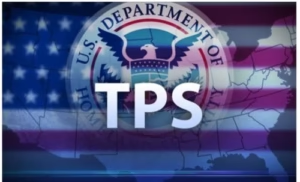The Department of Homeland Security (DHS) has formally confirmed, in a notice published on November 26, 2025, that Temporary Protected Status (TPS) for Haiti will end on February 3, 2026. The decision, signed by Homeland Security Secretary Kristi Noem, concludes months of political and legal battles over the fate of several hundred thousand Haitian nationals who have been living legally in the United States under this humanitarian protection.
According to the notice, DHS determined—after consulting other federal agencies—that Haiti “no longer meets the statutory requirements” for TPS and that allowing Haitians to remain temporarily in the country is now “inconsistent with the national interest of the United States.”
A Humanitarian Program Ending on February 3, 2026
TPS, created under U.S. immigration law, provides temporary deportation relief for nationals of countries affected by armed conflict, natural disasters, or “extraordinary and temporary conditions.” Beneficiaries are permitted to live and work legally in the United States for renewable, time-limited periods.
Haiti was redesignated for TPS in 2021 and extended again in 2023 and 2024, due to rapidly deteriorating security, economic collapse, and a massive humanitarian crisis. In July 2025, Secretary Noem announced that TPS for Haiti would end on September 2, 2025, but a federal judge blocked that move, ruling she could not cut short a previously granted extension that already ran through February 3, 2026.
The new announcement does not change the deadline. Instead, it formalizes that DHS will not renew TPS for Haiti beyond February 3, 2026.
A Clear Message to Haitian TPS Holders: “Prepare to Leave”
USCIS makes clear: Haitians with no other status must prepare to leave when TPS ends.
In the same document, DHS openly promotes the Trump administration’s revamped “self-deportation” tools, specifically the CBP Home mobile application, expanded in 2025 as part of Project Homecoming.
The agency describes the app as a “safe and convenient” way to report one’s departure. Those who choose to self-remove through the platform are promised, according to DHS and CBP documentation:
- a paid plane ticket or travel assistance,
- a $1,000 “exit bonus” upon confirmation of departure,
- waivers or reductions of certain civil penalties, and
- the possibility—under certain conditions—of applying later for legal immigration benefits.
Migrant-rights groups argue that these incentives amount to state-sanctioned pressure, calling the approach a system of coerced “self-deportation” meant to avoid the political fallout of mass removals.
Hundreds of Thousands Potentially Affected
Estimates vary, but legal experts and advocacy groups say the decision could affect several hundred thousand people directly or indirectly. Some independent analyses cite as many as 500,000 Haitians protected under various TPS designations over the years, including mixed-status families.
Many have lived in the U.S. for years, have U.S.-born children, stable jobs and homes, and have built entire lives around a status that has been repeatedly extended since the 2010 earthquake and the subsequent waves of political and gang violence.
The DHS decision means that beginning February 3, 2026:
- TPS-related work permits will no longer be renewed,
- protection from deportation will end, and
- Anyone without an alternative status (asylum, family-based residency, etc.) will fall out of status or be expected to leave.
Immigration attorneys anticipate a surge in legal consultations as the deadline approaches, but warn that alternative paths are limited and legally complex.
A Stark Contrast With Conditions in Haiti
The DHS justification rests on the claim that Haiti no longer faces “extraordinary and temporary conditions” that prevent nationals from safely returning. Secretary Noem and the Trump administration assert that the country is stable enough to receive returnees.
However, international reports paint a radically different picture:
- more than 5,000 gang-related killings in a single year,
- roughly 90% of Port-au-Prince is under gang control,
- more than one million internally displaced people, and
- Nearly half the population needs humanitarian assistance.
These figures were cited earlier this year by members of Congress—including Rep. Ayanna Pressley—who condemned the administration’s efforts to terminate TPS for Haiti as “contradicted by overwhelming evidence that the country remains profoundly unsafe.”
A Political Turning Point for Haitian Communities
The end of TPS for Haiti is part of a broader restructuring of immigration policy under President Donald Trump and Secretary Noem, who have already terminated protections for countries such as Venezuela and Cuba.
For Haitian communities—particularly in Florida, Massachusetts, and New York—the February 3 deadline looms large:
- Some families are considering relocating within the U.S. to states perceived as more protective,
- Others are scrambling to secure another form of legal status,
- Many fear a wave of forced or “voluntary” departures that could tear families apart, including families with U.S.-born children.
Calls grow for Congress to act, but DHS signals no policy reversal: TPS for Haiti ends February 3, 2026.








